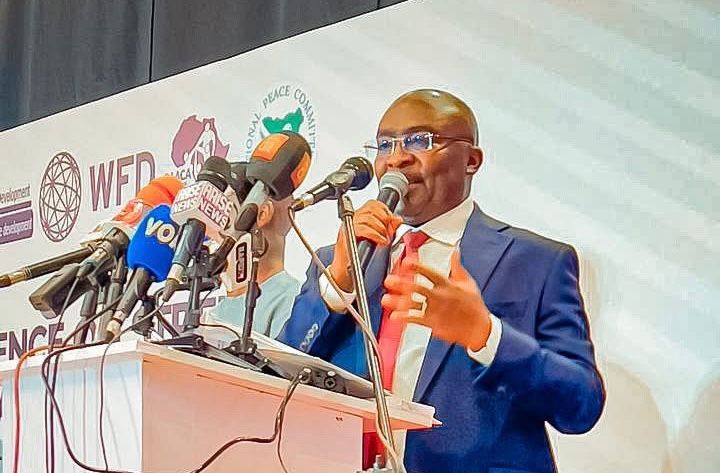Dr. Mahamudu Bawumia, a prominent figure in the New Patriotic Party (NPP) and aspirant for the party’s flagbearer position, has unveiled a transformative vision for Ghana’s budgeting system. His proposal centers on decentralization and inclusivity, shifting the budgetary framework from a centralized national model to a constituency-based approach. This radical shift, he argues, will empower local communities by directly involving them in the budgeting process, ensuring that every constituency’s specific needs and priorities are reflected in the national budget. This move towards localized budgeting is anticipated to foster greater transparency and accountability in the allocation and management of resources, allowing constituencies to take ownership of their development trajectory. Dr. Bawumia envisions this as a cornerstone of his presidential agenda, should he secure the NPP’s nomination and subsequently win the 2028 general elections. His plan aims to address the often-cited disconnect between national budgetary allocations and the actual needs on the ground, thereby promoting more equitable and effective development across the country.
The current centralized budgeting system, while providing a broad overview of national priorities, often falls short in addressing the specific needs of diverse communities. Dr. Bawumia’s proposed constituency-based budgeting seeks to rectify this by bringing the decision-making process closer to the people. Under this new framework, each constituency would effectively have its own budget, managed locally by elected representatives and community stakeholders. This localized approach would allow for more targeted allocation of resources, ensuring that funds are directed towards projects that directly benefit the constituency. Furthermore, it would foster a sense of ownership and responsibility within the community, encouraging active participation in development initiatives. By empowering constituencies to manage their own budgets, Dr. Bawumia aims to create a more responsive and efficient system that caters to the specific needs of each region, promoting balanced development and reducing regional disparities.
This decentralized budgeting system also promises to enhance transparency and accountability. With budgetary decisions made at the constituency level, local communities would have a clearer view of how funds are being allocated and utilized. This increased transparency would make it easier to monitor projects, track progress, and hold local leaders accountable for the effective use of resources. Moreover, the direct involvement of communities in the budgeting process would promote a sense of ownership and discourage corruption, as local stakeholders would have a vested interest in ensuring that funds are used for their intended purpose. This emphasis on transparency and accountability is a crucial element of Dr. Bawumia’s vision, reflecting his commitment to good governance and responsible use of public funds.
In addition to his revolutionary budgeting plan, Dr. Bawumia has also proposed designating all regional capitals in Ghana as duty-free zones. This initiative, he believes, will stimulate economic growth, create jobs, and reduce the cost of goods for consumers. By eliminating import duties and other trade barriers in these key economic hubs, businesses would have access to a wider range of affordable inputs, leading to increased productivity and competitiveness. This, in turn, is expected to attract foreign investment, boost exports, and create more employment opportunities, particularly in the manufacturing and trading sectors. The duty-free status of regional capitals would also benefit consumers by lowering the prices of imported goods, making them more accessible to a wider population.
The creation of duty-free zones in regional capitals aligns with Dr. Bawumia’s broader vision of decentralized development. By stimulating economic activity in these regional hubs, the initiative aims to reduce the concentration of economic opportunities in major cities like Accra, promoting more balanced regional development. This would also alleviate some of the pressure on urban centers, reducing congestion and improving the quality of life for residents. The duty-free zones would serve as catalysts for economic growth, attracting businesses and investment to the regions, creating jobs, and improving infrastructure. This, in turn, would create a more vibrant and dynamic economy, benefiting all Ghanaians.
Dr. Bawumia’s proposals for a decentralized budgeting system and duty-free regional capitals represent a significant departure from traditional approaches to governance and economic development. They reflect a vision of a more inclusive and participatory system, where local communities have a greater say in shaping their own future. By empowering constituencies to manage their own budgets and creating economic opportunities in regional capitals, Dr. Bawumia aims to foster more equitable and sustainable development across Ghana. These ambitious proposals, should they be implemented, have the potential to transform the Ghanaian economy and empower communities across the country. Their success, however, will depend on effective implementation, robust monitoring, and the continued commitment of all stakeholders to the principles of transparency, accountability, and inclusive development.














